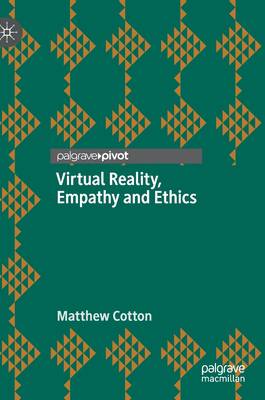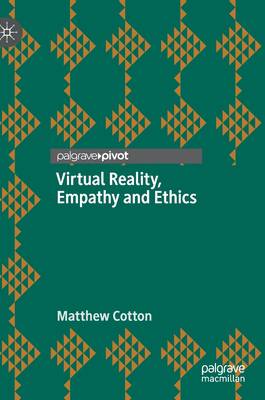
- Afhalen na 1 uur in een winkel met voorraad
- Gratis thuislevering in België vanaf € 30
- Ruim aanbod met 7 miljoen producten
- Afhalen na 1 uur in een winkel met voorraad
- Gratis thuislevering in België vanaf € 30
- Ruim aanbod met 7 miljoen producten
Zoeken
Omschrijving
This book examines the ethics of virtual reality (VR) technologies. New forms of virtual reality are emerging in society, not just from low-cost gaming headsets, or augmented reality apps on phones, but from simulated "deep fake" images and videos on social media. This book subjects the new VR technological landscape to ethical scrutiny: assessing the benefits, risks and regulatory practices that shape it. Though often associated with gaming, education and therapy, VR can also be used for moral enhancement. Journalists, artists, philanthropic and non-governmental organisations are using VR films, games and installations to stimulate user empathy to marginalised peoples through a combination of immersion, embodiment and persuasion. This book critically assesses the use of VR for empathy arousal and pro-social behaviour change, culminating in the development of a VR "ethical tool" - a device to facilitate reflective ethical judgement. Drawing upon the pragmatist philosophy of John Dewey, virtual reality is reshaped as "dramatic rehearsal". This book explains how a combination of immersive environment-building, moral imagination, choice architecture and reflective engagement can stimulate a future-focused and empathic ethics for users of the technology.
Specificaties
Betrokkenen
- Auteur(s):
- Uitgeverij:
Inhoud
- Aantal bladzijden:
- 153
- Taal:
- Engels
Eigenschappen
- Productcode (EAN):
- 9783030729066
- Verschijningsdatum:
- 22/09/2021
- Uitvoering:
- Hardcover
- Formaat:
- Genaaid
- Afmetingen:
- 148 mm x 210 mm
- Gewicht:
- 353 g

Alleen bij Standaard Boekhandel
+ 147 punten op je klantenkaart van Standaard Boekhandel
Beoordelingen
We publiceren alleen reviews die voldoen aan de voorwaarden voor reviews. Bekijk onze voorwaarden voor reviews.











